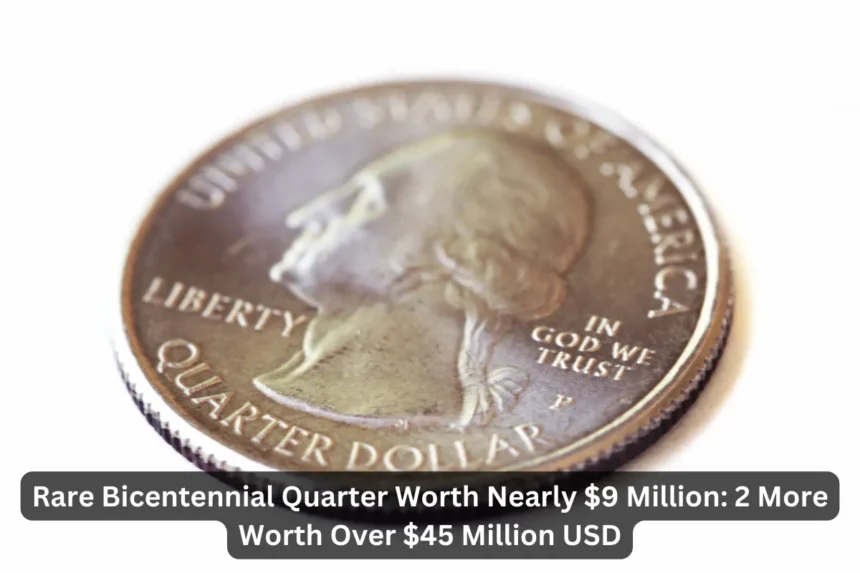In the world of numismatics, the discovery of rare coins often sets collectors’ hearts racing. Such was the case recently when news broke of the unearthing of a rare bicentennial quarter, valued at nearly $9 million. But what makes this coin so extraordinary, and how does it stack up against other valuable coins in the market? Let’s delve into the fascinating world of rare coins and explore the stories behind these extraordinary finds.
The bicentennial quarter in question dates back to 1976, a significant year for American history as it marked the nation’s 200th anniversary. The coin features a unique design, with a colonial drummer on the reverse side, symbolizing the spirit of independence and freedom. However, what sets this particular quarter apart is not just its historical significance but its rarity. Only a handful of these quarters were minted with a unique error, making them highly sought after by collectors.
The error in question involves a misalignment of the minting dies during production, resulting in a double impression on the coin’s reverse side. This minting flaw is exceptionally rare, with only a few examples known to exist. The combination of historical significance, rarity, and minting error has catapulted the value of this bicentennial quarter to nearly $9 million, making it one of the most valuable coins in existence.
But the discovery of this rare bicentennial quarter is not an isolated incident. In recent years, several other coins have fetched astronomical prices at auctions, showcasing the enduring allure of numismatics among collectors worldwide. Two notable examples include the 1913 Liberty Head nickel and the 1794 Flowing Hair silver dollar, both of which have fetched over $45 million USD each.
The 1913 Liberty Head nickel is a legendary coin in numismatic circles. Only five examples are known to exist, with each coin shrouded in mystery and intrigue. Minted under mysterious circumstances, possibly as a clandestine attempt by a mint employee to profit from unauthorized coinage, these nickels have become the stuff of legend. The combination of scarcity, historical intrigue, and impeccable condition has propelled the value of each 1913 Liberty Head nickel to over $45 million USD, making them some of the most valuable coins in the world.
Similarly, the 1794 Flowing Hair silver dollar holds a special place in American numismatic history as the first dollar coin ever issued by the United States Mint. Designed by renowned engraver Robert Scot, this coin features a striking depiction of Lady Liberty with flowing hair on the obverse side, symbolizing the young nation’s ideals of liberty and freedom. Only a handful of these coins are known to exist in private collections, with one example selling for over $45 million USD, setting a new record for the most expensive coin ever sold at auction.
What accounts for the staggering prices fetched by these rare coins? Part of the allure lies in their scarcity and historical significance. Each coin represents a tangible link to the past, offering collectors a glimpse into the rich tapestry of American history and culture. Moreover, the finite supply of these coins ensures that demand far outstrips supply, driving prices to stratospheric levels.
For collectors, acquiring rare coins is not just a hobby but a passion, driven by a desire to preserve history and build a tangible connection to the past. Whether it’s a bicentennial quarter with a minting error or a legendary Liberty Head nickel, each coin tells a unique story, serving as a testament to the enduring fascination of numismatics.
In conclusion, the recent discovery of a rare bicentennial quarter worth nearly $9 million is just the latest chapter in the saga of extraordinary coins fetching astronomical prices. From the legendary 1913 Liberty Head nickel to the historic 1794 Flowing Hair silver dollar, these coins captivate collectors with their rarity, historical significance, and immense value. As long as there are collectors with a passion for preserving history, the allure of rare coins will continue to endure for generations to come.

